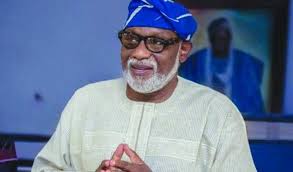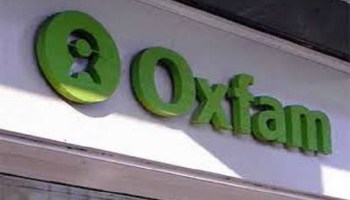….As Service Trains Officers On Harmonized System Coding
The House of Representatives’ Public Accounts Committee on Tuesday queried officials of the Nigerian Customs Service (NCS) over alleged non-submission of audited financial statements for 2016, 2017, and 2018 financial years to the Auditor-General of the Federation.
The Comptroller-General of Nigeria Customs Service (NCS), Mr. Adewale Adeniyi, who led the Service’s team during the hearing of the committee chaired by Hon. Bamidele Salam, was questioned over the queries raised by the Auditor General to the Federation on the 2017 audited report.
The queries read in part: “Under-remittance of revenue into the federation account for the year 2017 in sum of N62,242,980,006.87, discrepancies in reported revenue figures, resulting in under-remittance of revenue of sum N63,601,805,270.67, under-disclosure of outstanding remittance for the year 2016 to sum N10,473,681.51, non-maintenance of bank statements and bank reconciliation statements, non-maintenance of revenue collectors receipt
“Violation of E-payment policy of the federal government of sum N2,654,500.00 and non-submission of audited financial statements for 2016,2017 and 2018 financial years.”
In his defence, the Comptroller-General explained that only Common External Tariff (CET) were being remitted into the federation account by the OAGF, while others that were active were remitted into the Non-Federation Account.
Adeniyi maintained that there was an over remittance of N1,170,469,464.13 only, into the federation account, which showed that there was no under-remittance of N62,242,980,006.87.
He further told the lawmakers that since the commencement of the Treasury Single Account (TSA), the Service’s Area Commands were not maintaining accounts with commercial banks, hence, all accounts closed and the revenue collected are remitted directly to the Central Bank of Nigeria (CBN), and the statements are accessed at the Service’s headquarters through CBN’s Transaction Query System(TQS)
The Comptroller-General clarified: “Since the introduction of repayment in 2009, the maintenance of treasury Book 6A for revenue collections was stopped. Rather, the repayment receipts on the Nigeria Integrated Customs Information System platform have replaced the treasury books 6A.
“The service does not have a fuel dump and this necessitates the fuelling of the vehicles for operational purposes which cut across the four zonal headquarters and area commands across the nation for control purposes.
“The service submitted copies of audited financial statements and management reports for the three (3) years under review”, Adeniyi added.
The documents submitted to buttress his points indicated that the audited financial statements for 2016, 2017, and 2018 financial years were presented to the Auditor-General for Federation in 2021.
Meanwhile, the Service on Monday conducted a training on Harmonized System coding and customs laboratories for its officers to improve duty collection and enhance service efficiency.
In his opening address at the training workshop, the Comptroller-General commended the collaboration with key agencies at the commencement of a five-day course, pointing out that the NCS recognized the need for NCS laboratories, hence its collaboration with the EU-WCO Global Alliance for Trade Facilitation, GIZ, and others to organize the programme.
Represented by the Assistant Comptroller-General in charge of Training and Coordination, Malata Yusuf, the C-G emphasized the necessity for the Service to have its laboratory to determine the preferential conditions of goods, duties to be paid, and the genuineness and safety of goods.
He charged the selected officers to avail the opportunity of the capacity building to acquire knowledge that will pave the way for NCS to thrive in global trade, Africa Continental Free Trade Agreement (AfCTA), and other areas.




